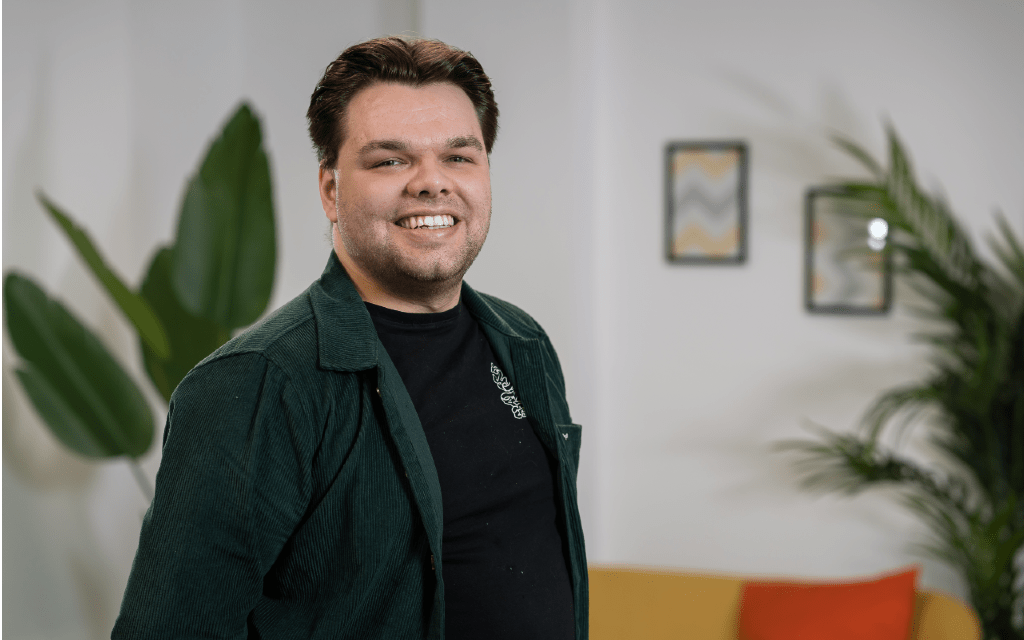Last week, our Assistant Research Editor, Tom, attended the Accountex Summit in Manchester. Here’s his summary of everything you need to know.
Thousands of attendees visited Accountex Summit Manchester on 12 October at Manchester Central. Visitors could browse over 100 software and service suppliers including Sage, Xero, Dext, IRIS and Xledger.
All the while, in each corner of the 140 year old convention centre, over 60 industry leading speakers took to the stage in a reeling 32 talks, each lasting 40 minutes and open to all. From Making Tax Digital to tax implications for cryptocurrency and tips on overcoming modern challenges in accountancy, the knowledge up for grabs was astounding.
In all, around 1,500 accountants, finance directors and bookkeepers from all over the UK were able to gather in Manchester to network, learn from one another and enjoy each other’s company at the after show party.
In the day I was there, I got to learn more about what matters to accountants than I could have imagined. Here’s my review of Accountex Summit Manchester 2022, and some of the insights I got from the experience.
The digital firm
Everywhere you looked at the Accountex Summit were tech vendors and suppliers. You’ll have heard of some: Dext, ApprovalMax, Xero, Sage, FreeAgent, 123 Sheets, CMap, Capium and more.
Then there were the ones less known in the market, but offering unique technological solutions. PayrollBee, for example, and its bright yellow stool was hard to miss, advertising payroll tech. Inform Direct were busy guiding visitors through their technology for company secretarial, while Novel handed out information about their technological solutions to R&D tax relief projects.
Accountancy and technology have a strange partnership, with popular myths suggesting that accountants will be made completely redundant by technology that can “do their job for them”. But nowhere at Accountex did you get that impression – only the impression that technology can enhance accounting firms.
Steve Leonard of Winders Accountants hosted a fascinating presentation at the end of the event dispelling such myths.
Unafraid to say it with so many software suppliers present, he told his audience not to fall for marketing that suggests accounting technology does accounting without the need of an accountant. Put rubbish data into technology without the analysis only a real person can do, and you get rubbish out the other end, he explained.
Of course, you can’t talk about technology in accounting without mentioning Making Tax Digital for income tax self-assessment (MTD ITSA), which Russell Frayne, head of UK digital accounting solutions at Azets called the “biggest generational change” in accounting.
These MTD talks were by far the most popular among the crowds, and included a roundtable discussion with HMRC itself. The main takeaway? MTD is the perfect place for a firm to start on its technological transformation journey if it doesn’t know where to begin.
Meanwhile, tech education was also prevalent. I’ve already mentioned the scores of software providers giving hands on looks into their products. But again, this was a major talking point in seminars.
From an analysis of practice management software to how Dext can unlock insights into your practice, and how the right tech ensures the success of your payroll team, this wasn’t a place for the analogue, tech-averse accountant.
Being human
Will Farnell, founder of Farnell Clarke and author of ‘The Digital Firm’, discussed technology alongside Bev Flanagan, founder of Mind Your Assets Accounts and Steve Cox of IRIS. They spelled the difference between the tech-averse ‘analogue firm’, the fully transformed ‘digital firm’, and the ‘digitised firm’ that is somewhere on their tech journey, but may be using some of their solutions incorrectly in some cases.
But what comes after the digital firm? What does the firm of the future look like? Farnell answered: ‘the human firm’.
The human firm is a digital firm that has perfected its processes and is always integrating the latest technology to the extent it struggles to squeeze out any more improvements in efficiency. The time it saves goes towards perfecting customer satisfaction and experience. In other words, the future of accountancy is what we saw 25 odd years ago before compliance work took accountants away from their clients.
It was a very hopeful and positive idea, and one that recognised that accountants are human.
At times, being human was explained as a tool to do well. Carl Reader of D&T, for instance explained the accountant of the future was the one that truly cared for their client. Ria-Jane, also known as ‘The Beauty Accountant’, meanwhile, talked about the benefits of giving the human touch to your business social media page by showing your face and writing in your own tone of voice.
But the human touch went further than that at Accountex.
Seminars discussed coping with the demands on accountants. Mindful Education was present with a stool to promote learning tools for busy lives. Helen Cowley gave a particularly touching talk about career progression to a young audience, explaining the importance of her family, friends and mental health during the challenges in her career.
Meanwhile, everywhere you looked, people were smiling and laughing with one another, happy to be in each other’s company after a particularly tough two years in the accounting industry. I can only assume the smiles kept up during the after party!

